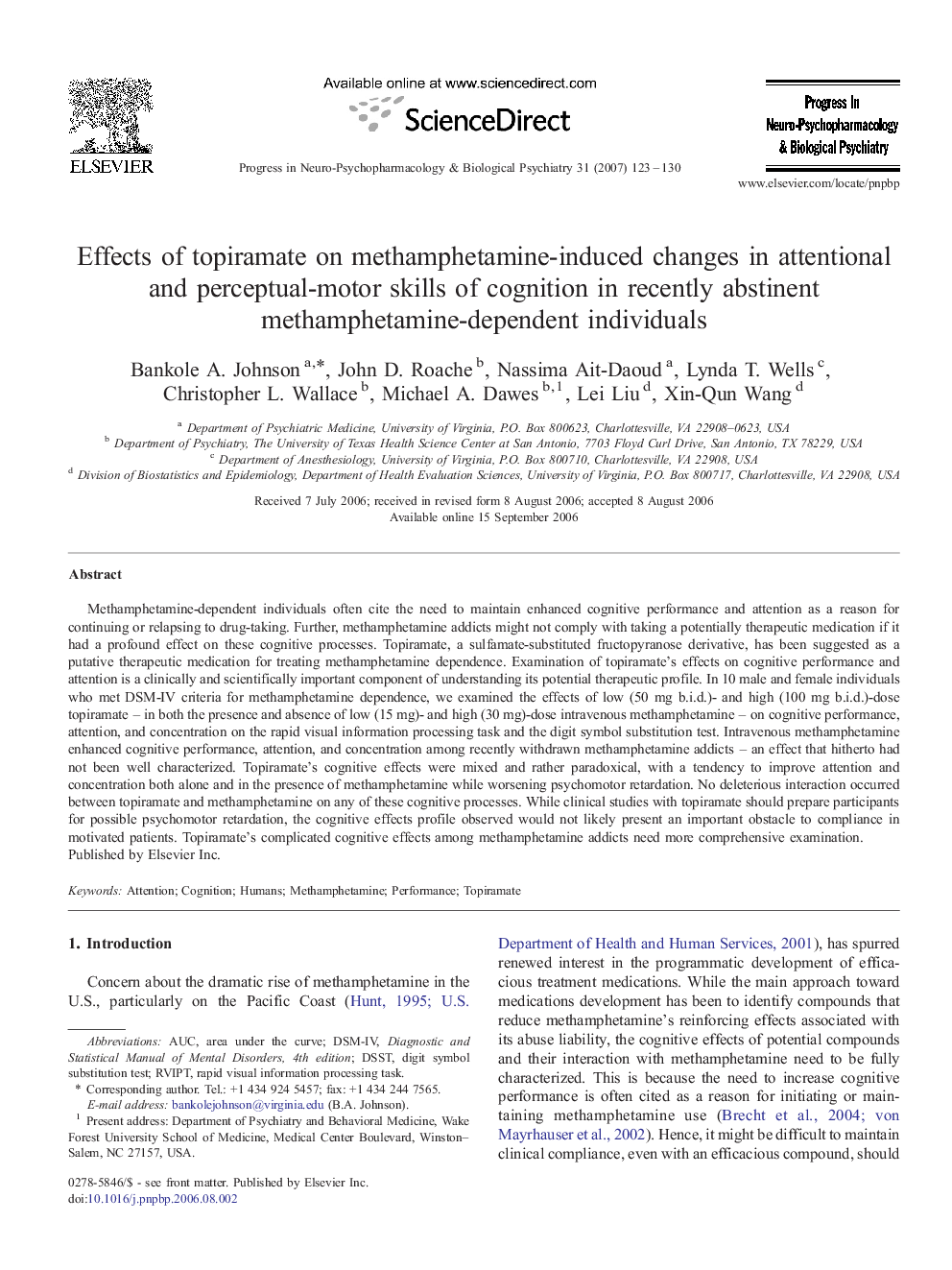| Article ID | Journal | Published Year | Pages | File Type |
|---|---|---|---|---|
| 2566021 | Progress in Neuro-Psychopharmacology and Biological Psychiatry | 2007 | 8 Pages |
Methamphetamine-dependent individuals often cite the need to maintain enhanced cognitive performance and attention as a reason for continuing or relapsing to drug-taking. Further, methamphetamine addicts might not comply with taking a potentially therapeutic medication if it had a profound effect on these cognitive processes. Topiramate, a sulfamate-substituted fructopyranose derivative, has been suggested as a putative therapeutic medication for treating methamphetamine dependence. Examination of topiramate's effects on cognitive performance and attention is a clinically and scientifically important component of understanding its potential therapeutic profile. In 10 male and female individuals who met DSM-IV criteria for methamphetamine dependence, we examined the effects of low (50 mg b.i.d.)- and high (100 mg b.i.d.)-dose topiramate – in both the presence and absence of low (15 mg)- and high (30 mg)-dose intravenous methamphetamine – on cognitive performance, attention, and concentration on the rapid visual information processing task and the digit symbol substitution test. Intravenous methamphetamine enhanced cognitive performance, attention, and concentration among recently withdrawn methamphetamine addicts – an effect that hitherto had not been well characterized. Topiramate's cognitive effects were mixed and rather paradoxical, with a tendency to improve attention and concentration both alone and in the presence of methamphetamine while worsening psychomotor retardation. No deleterious interaction occurred between topiramate and methamphetamine on any of these cognitive processes. While clinical studies with topiramate should prepare participants for possible psychomotor retardation, the cognitive effects profile observed would not likely present an important obstacle to compliance in motivated patients. Topiramate's complicated cognitive effects among methamphetamine addicts need more comprehensive examination.
